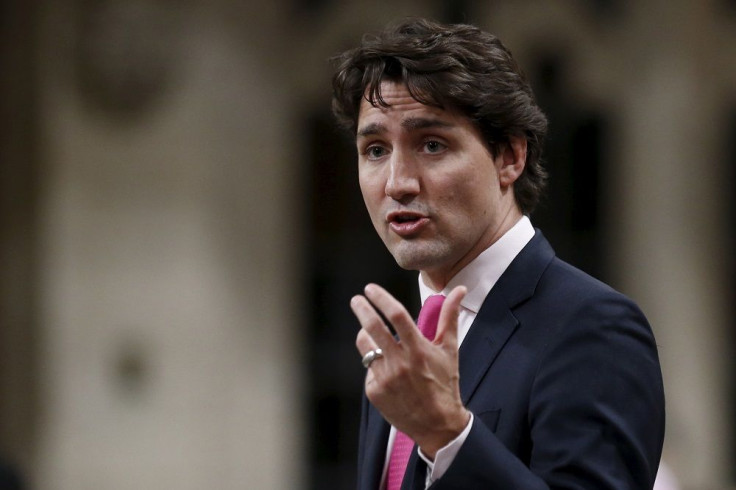Canada struggles to find its footing in the climate change war

Canadian Prime Minister Justin Trudeau has somewhat shocked his environmentalist supporters when he said the country will accelerate its plans to becoming a major player in the global climate change war without abandoning the mining sector comprising oil and gas industries in his speech at the Globe 2016 . The Globe 2016 is a conference on green technology attended by various global green tech industry leaders.
Trudeau explained that it is his responsibility to keep the economy competitive by protecting all industries as the country looks for the best and most modern means of eliminating carbon footprints.
“The choice between pipelines and wind turbines is a false one. We need both to reach our goal, and as we continue to ensure there is a market for our natural resources, our deepening commitment to a cleaner future will be a valuable advantage,” Trudeau said on Wednesday in Vancouver.
Indeed, the Canadian PM has lots of work to do in the years to come, and everyone’s eyes are on him. The young leader has gained attention in recent past for his unprecedented moves that include his non-traditional cabinet appointments , stance on equality , and decision to join an LGBT parade , something that no Canadian PM has ever done before. His “ Canada is back ” statement in COP21 in Paris in 2015 has become a grandiose promise, which proclaimed to the world that Canada would soon become a leader in carbon footprint emission and championing clean technology.
In 2014, a year before Trudeau became prime minister, Canada’s share in the Cdn $790 billion-worth (AUD$792 billion) global clean energy tech market stood only at a mediocre Cdn $7billion (AUD$7.01 billion). According to Montreal Gazette , the country fell miserably behind other global leaders such as the US, China, and Germany. Canada invested Cdn $1.9 billion (AUD$1.905 billion) for 379 startups, while the United States managed to spend over Cdn $48 billion (AUD$48.13 billion).
By 2020, the global green tech market is expected to reach $1.8 trillion (AUD$1.805 trillion) by 2022, and Trudeau wants Canada to become of one the world’s largest contributors. For him , this means making decisions highly based on scientific research, battling carbon emissions at whatever cost, partnering with provincial and territorial leaders and industries, and supporting anti-climate change advocacies.
What Canada needs to do is support startup entrepreneurs focused on green technology, and put more money in research and development for more powerful and cheaper alternative energy sources. Indeed, it must nurture giant green projects akin to UK Biomass Power Project or the US Solana Solar Project to entice foreign green investors and markets. This could attract the likes of 5B AR z International ( OTCQB: BARZ ) , a US-based company that helps in reducing India’s network infrastructure-related quandaries through its power-saving, environment friendly plug-and-play network extender . Canada can also transform into a perfect expansion market for nascent firms like Thermolift Inc. or Hazel Technologies , which both have revolutionary and straightforward approach to carbon footprint emission.
Fortunately, things are positively changing for Canada’s future. Companies with an environmental slant, if not totally green, in their services, are gaining leverage over its non-green counterparts. "The next generation of younger people entering the workforce is trying to join companies that have a form of sustainability, such as initiatives that give back or do something for the environment. These help to retain employees, which can lead to some cost savings over the longer term," Jodi Glover, CEO of green water treatment-focused Real Tech Inc, told The Globe and Mail.
However, rather more importantly, the Trudeau administration must maintain its focus on its newest climate change policy as, like any other new strategies, it has also it fair share of detractors . Indeed, many are saying that Trudeau’s ambitious and impractical. Even Germany, the US, the UK have these sceptics, too, but these did not stop them from being the biggest forces in global climate change war.




















